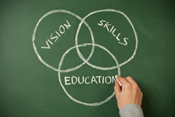 Recently I had the pleasure to conduct professional learning sessions on literacy with three separate groups of teachers. The teachers spanned every discipline, which is understandable, given the trends in education throughout the country.
Recently I had the pleasure to conduct professional learning sessions on literacy with three separate groups of teachers. The teachers spanned every discipline, which is understandable, given the trends in education throughout the country.
Ever since the adoption of college and career-ready academic standards in Michigan, and throughout the country, more emphasis has been placed on nonfiction reading’s important role in all disciplines. All learners benefit when science teachers, social studies teachers, and math teachers take the time to deconstruct their texts, which helps students understand how to read them. This is true for both traditional print resources and online resources.
To this extent, content-area teachers have realized that they must also become teachers of reading. This realization helps students best access course content and achieve greater understanding.
Real Reading at Hamtramck High
In our professional learning sessions, we emphasized the Reading Apprenticeship approach to teaching reading.
The approach was developed by WestEd, an educational research and services agency. As the agency describes it:
Teachers using the Reading Apprenticeship framework regularly model disciplinary-specific literacy skills, help students build high-level comprehension strategies, engage students in building knowledge by making connections to background knowledge they already have, and provide ample guided, collaborative, and individual practice as an integral part of teaching their subject area curriculum.
This approach helps educators appreciate their important role in teaching students to read and comprehend course content, whether in a traditional English class, a physics class, or physical education.
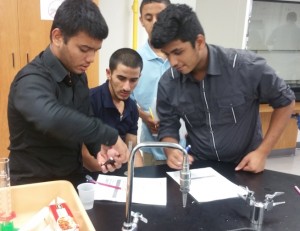
Hamtramck students in a lab
The approach is useful for a school like Hamtramck High School. Hamtramck is a haven for students whose families hail from all over the world. One of two small municipalities located entirely within the city of Detroit, Hamtramck has a sizable number of students from Yemen and Bangladesh.
For these students, educators realize the need to make esoteric academic language comprehensible. During the professional learning sessions, I clearly saw that these teachers not only had a passion for helping their students learn; they also had a willingness to embrace the approaches of the Reading Apprenticeship model.
Metacognitive Conversation’s Benefits
In the sessions, we explored metacognitive conversation and the four dimensions of literacy–social, personal, cognitive, and knowledge-building. And through this, the teachers came to understand their critical influence over students’ attitudes toward reading.
The metacognitive approach–which largely centers on “making thinking visible”–enables educators to demystify their thought processes as they read and engage with a text. As a teacher explains what is going on in his or her head while reading, students are able to understand the thinking, and gain easier access to course content. This demystification of content also clarifies how information is acquired and why it matters.
So, when educators consciously engage in self-talk during a lesson, students benefit. Furthermore, these skills are very transferable. Students realize that they can apply these newly acquired content-area reading strategies in other disciplines.
This can having lasting effects. Teachers who engage in metacognitive strategies truly help their students, creating a future where the power of reading is enshrined as a lifelong value.
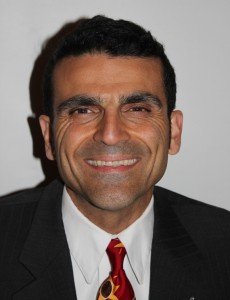 Rick Joseph is a National Board Certified Teacher and has taught 5/6 grade at Covington School in the Birmingham Public School district since 2003. Prior, he served as a bilingual educator and trainer for nine years in the Chicago Public Schools. Rick is thrilled to serve as the 2016 Michigan Teacher of the Year. Through Superhero Training Academy, Rick’s students have created a superhero identity to uplift the communities where they learn and live.
Rick Joseph is a National Board Certified Teacher and has taught 5/6 grade at Covington School in the Birmingham Public School district since 2003. Prior, he served as a bilingual educator and trainer for nine years in the Chicago Public Schools. Rick is thrilled to serve as the 2016 Michigan Teacher of the Year. Through Superhero Training Academy, Rick’s students have created a superhero identity to uplift the communities where they learn and live.

 A few years back I recognized that I was getting stale—not bad, just not good—and that I was becoming calcified in my self-assurance. I don’t remember an exact moment when I noticed it. In any case, I didn’t want to become the teacher who boasts 20 years of experience, when he really means two years of experience repeated 10 times. I looked around until I found a seminar given by Columbia University and
A few years back I recognized that I was getting stale—not bad, just not good—and that I was becoming calcified in my self-assurance. I don’t remember an exact moment when I noticed it. In any case, I didn’t want to become the teacher who boasts 20 years of experience, when he really means two years of experience repeated 10 times. I looked around until I found a seminar given by Columbia University and 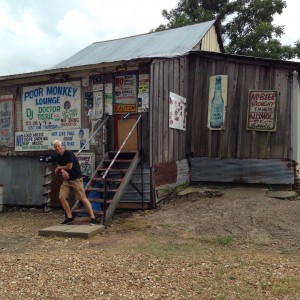 This year found me at
This year found me at 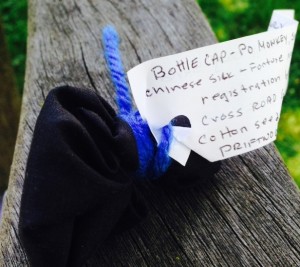
 Rick Kreinbring teaches English at Avondale High School in Auburn Hills, Michigan. His current assignments include teaching AP Language and Composition and AP Literature and Composition. He is a member of a
Rick Kreinbring teaches English at Avondale High School in Auburn Hills, Michigan. His current assignments include teaching AP Language and Composition and AP Literature and Composition. He is a member of a 
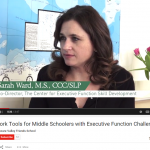
 Engagement–what does it mean? How do we foster engagement in our classrooms? Like Marcia, I see learner identity as a key part of engaging learners. The idea of mindset playing a role in how a learner engages is well
Engagement–what does it mean? How do we foster engagement in our classrooms? Like Marcia, I see learner identity as a key part of engaging learners. The idea of mindset playing a role in how a learner engages is well 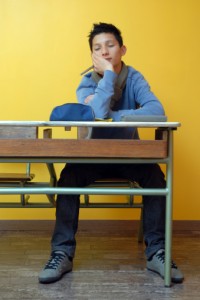 Not long ago, I came across Staci Hurst’s
Not long ago, I came across Staci Hurst’s 
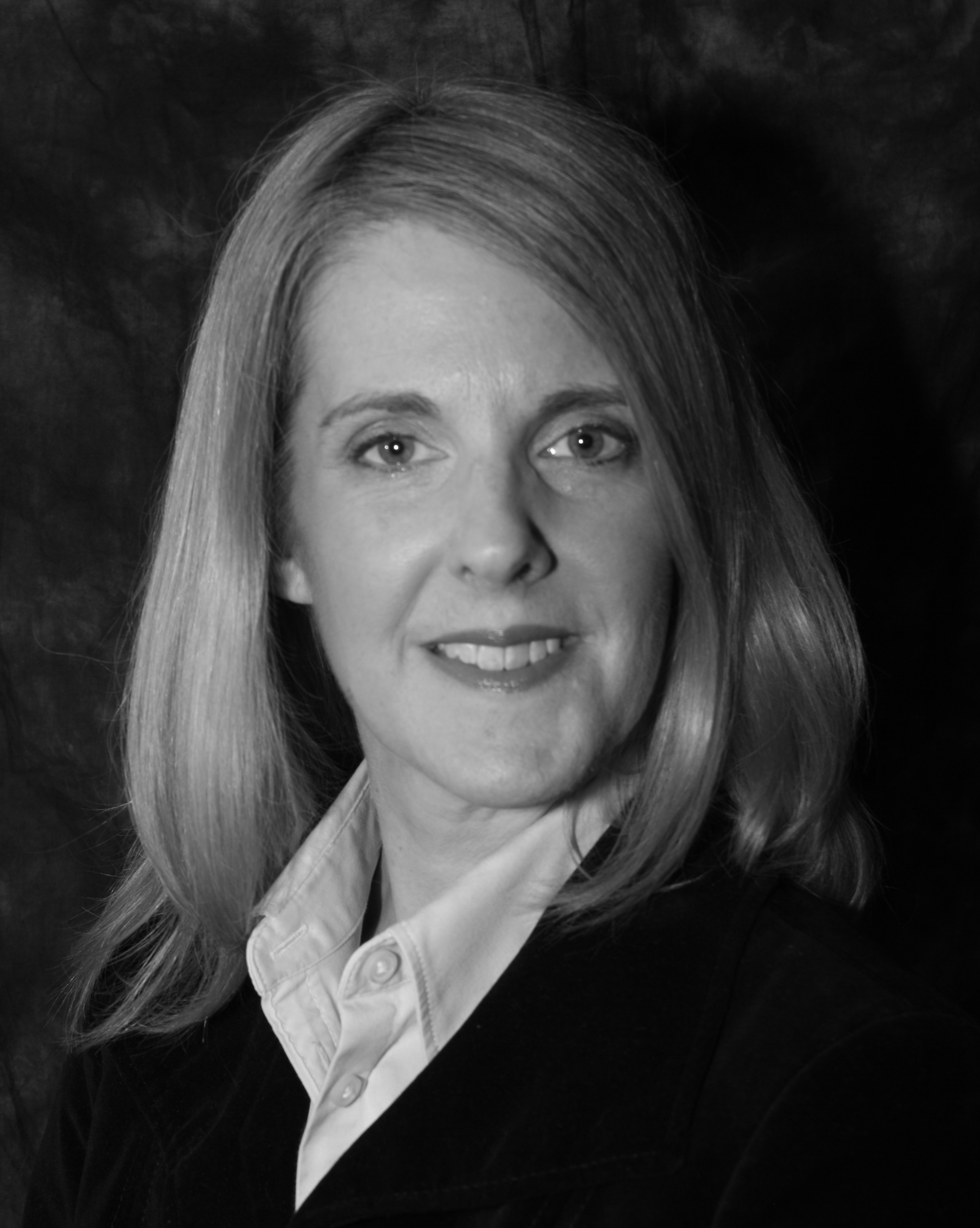 Susan Wilson-Golab joined Oakland Schools in 2010 following 22 years of in the field 6-12 experience across two different states and rural, suburban, and urban contexts. Her research and practice focus heavily on the evolving definition of literacy, developmental learning progressions, and formative assessment. At the district level, Susan has served as classroom teacher, Literacy Specialist, and ELA Curriculum Coordinator. These experiences and study helped Susan in her role as Project Leader for developing a
Susan Wilson-Golab joined Oakland Schools in 2010 following 22 years of in the field 6-12 experience across two different states and rural, suburban, and urban contexts. Her research and practice focus heavily on the evolving definition of literacy, developmental learning progressions, and formative assessment. At the district level, Susan has served as classroom teacher, Literacy Specialist, and ELA Curriculum Coordinator. These experiences and study helped Susan in her role as Project Leader for developing a 